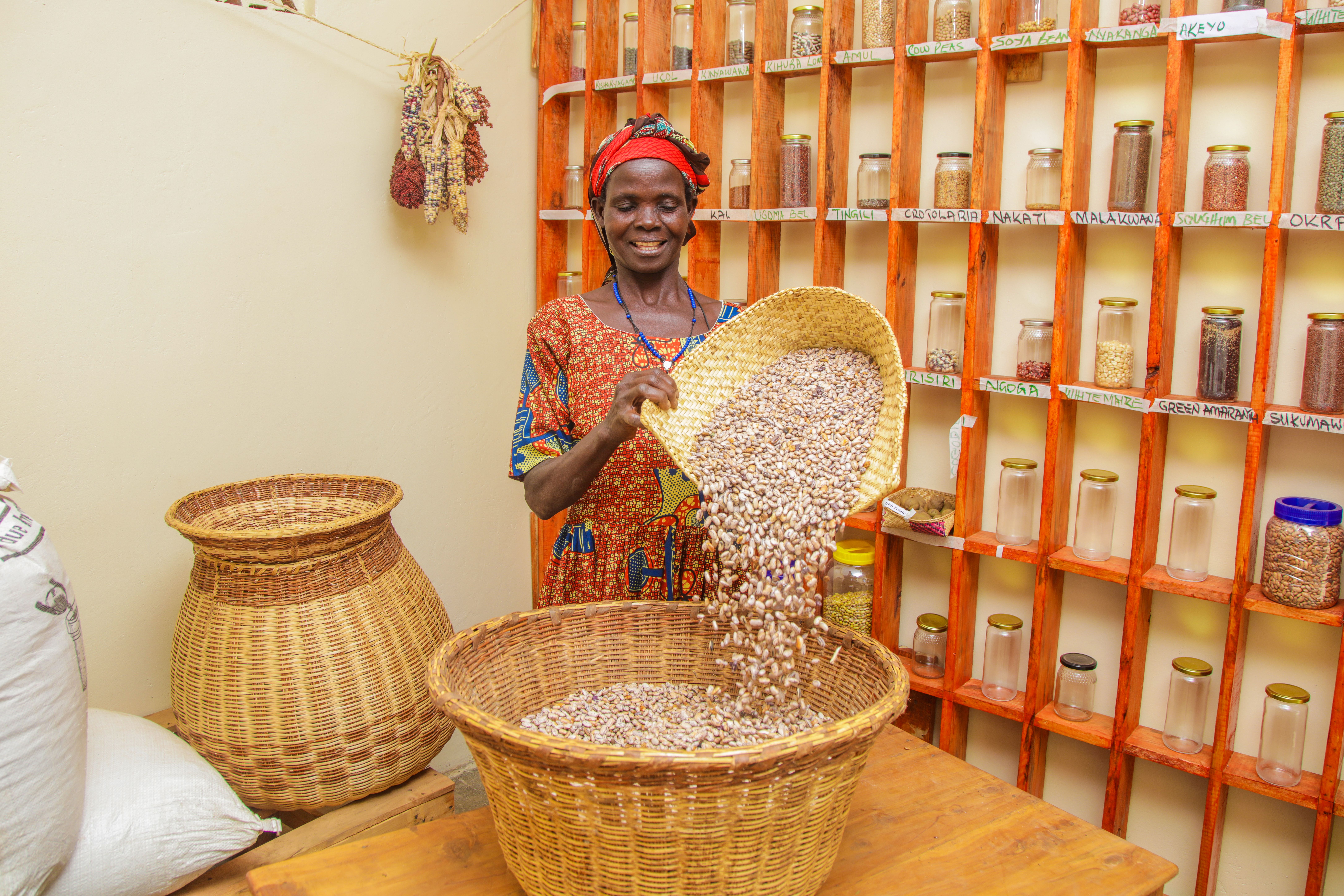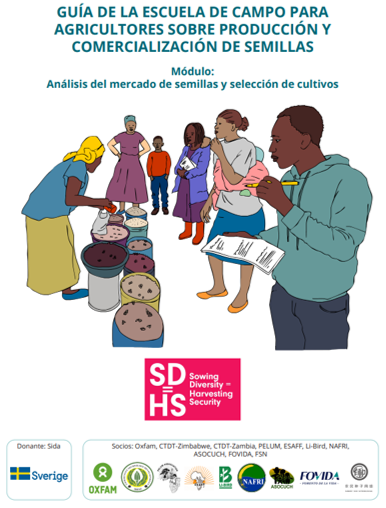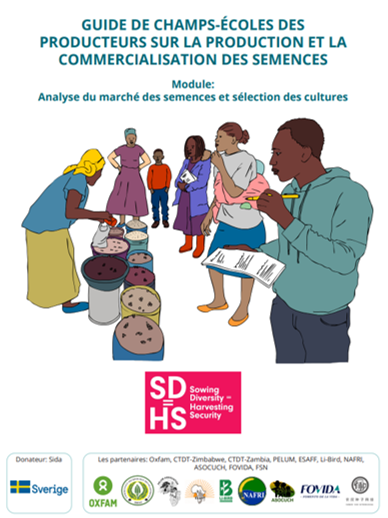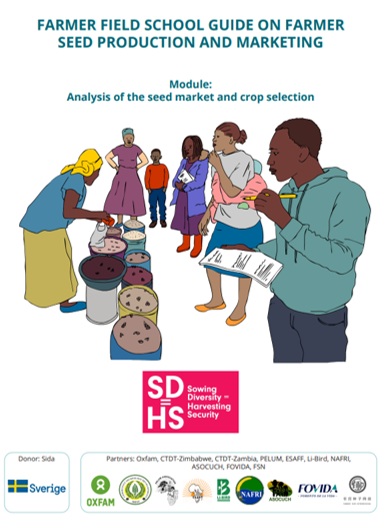By Nout van der Vaart and Bram de Jonge, Oxfam Novib
Summary of GB10 plenary session and main discussions held
From November 18-25, a team of SD=HS representatives participated in the 10th session of the Governing Body (GB10) of the International Treaty on Plant Genetic Resources for Food and Agriculture (ITPGRFA). The session, held at the FAO headquarters in Rome, discussed several salient topics in the field of plant genetic resources. Next to participating in and contributing to inputs made by Civil Society Organizations (CSOs) and Farmer Organizations (FOs) to the plenary session, the SD=HS team contributed with a side event on farmer variety registration (FVR).
During the plenary session, there were three topics of particular interest that gained most attention. Firstly, member countries discussed the process and agenda for further negotiations regarding the enhancement of the Multilateral System (MLS) for Access and Benefit Sharing (ABS). It was agreed that the ‘June 2019 draft package’ (the package that was on the table before negotiations collapsed at GB8) will be used as the starting point for further work, and that to make sufficient progress, four formal in-person meetings of the Working Group will be needed. Three ‘hotspots’ for negotiations were identified. The first one is about the extent to which the existing list of crops included in the MLS (currently 64 in the so-called Annex 1) should be expanded. The second issue relates to what provisions should be made to ensure that benefits of the use and commercialization of the crops included in the MLS will be shared. This focuses mainly on the development of possible payment structures and rates, about which no consensus exists yet between member states. The third issue is about the question whether digital sequence information (DSI) should be included in the MLS.
Farmer Rights were also discussed as a separate agenda item. CSOs/FOs called for the overall recognition of Farmers Rights as a cross cutting issue in the implementation of the Treaty, and for the mainstreaming of the implications for farmers rights in all the Treaty’s work. Particularly, for the development of Voluntary Guidelines that would structure and guide the implementation of Farmers’ Rights in Treaty member countries. Although a topic of discussion for many years already, not much progress was made on this point, because of countries’ diverging opinions on this issue. Member states eventually agreed to reconvene the technical expert group, which will be tasked to review the assessment of the state of implementation of Article 9 (on Farmers’ Rights) of the International Treaty prepared by the Secretariat, to prepare and present for consideration by the Governing Body at its Eleventh Session in 2025.
Lastly, member countries agreed on the first steps towards the development of voluntary guidelines on the implementation of Articles 5 and 6 on conservation and sustainable use of PGRFA, together with the development of a mechanism to identify the status of implementation so far. The Treaty secretary was requested to, amongst other things, organize regional consultations on current implementation with a particular focus on identified bottlenecks and possible approaches to address them. Taken all together, very little progress was made but some important steps were taken to clear the path towards the important negotiations on enhancing the Treaty’s MLS in the coming two years, which hopefully will lead to the adoption of an improved system of access and benefit-sharing at the next Governing Body meeting. Together with other CSOs and farmer organizations, Oxfam will see how it can be involved in the intersessional work on all three topics to work towards an enabling environment for farmer-managed seed systems that supports small-holder farmers and indigenous communities to continue to maintain and develop the plant genetic resources we all depend upon for our food and agriculture.
Oxfam/SD=HS-organized side event on the development of a Farmer Registration Framework (FVR)
On Thursday, November 23rd, SD=HS representatives organized a side session which brought together stakeholders to discuss ideas on how to develop a farmers’ variety registration system. Following a stakeholder workshop organized by SD=HS in Ethiopia earlier this year in which different actors sat together for a week hashing out questions as to what farmer variety registration should entail, a draft general framework for registering farmer varieties was presented by Bram de Jonge, Seed Policy Specialist at Oxfam Novib.
He explained that by allowing for the registration of farmers’ varieties, farmers would get the opportunity to be recognized for contributing to the conservation of agrobiodiversity, market a particular variety and get their seed certified – without compromising traditional use of the seed or restricting other groups to continue breeding with the initial variety. Other farmer groups interested in commercializing the registered variety however would have to buy the original starter seeds with the first registrant group, who would also be responsible for maintaining the starter seeds. Permission for use by seed companies would need to be secured in advance, based on the payment of a particular fee. Anyone could use the registered farmers’ variety subsequently for further breeding and development purposes. To avoid misappropriation of the developed material however, a copyleft provision, or Open Source Seed pledge would be applied, through which the actor using the registered variety for further breeding pledges not to restrict access to the fruit of its breeding efforts to others. He also mentioned that since farmers’ varieties are often more heterogeneous and less uniform and stable than varieties from the formal seed system, regulators would have to allow for different requirements regarding the characteristics and performance of the varieties to be released under a farmer variety registration system.
John Waswa Mulumba, Curator at the Plant Genetic Resources Centre (PGRC) in Uganda, subsequently took the floor. He spoke about how Uganda had developed a draft framework for the registration of farmer varieties in the past few years. He explained that Uganda developed a new national seed policy in 2018, which has a space for all players in the seed sector, and which anchors the registration of farmer varieties as a priority area. One of his main findings was that uniformity of a farmers’ variety had been the main limiting factor so far in the Ugandan experience (and hence, that different requirements for a variety’s characteristics would be needed in a farmers’ variety registration system). With the developed schedule (named ‘Schedule X’), farmers who would seek registration of a particular variety would need to provide detailed information showing that they had been the sole or main actor maintaining the source material over time. Mr. Mulumba clarified that the draft Schedule X currently lies with the Minister of Agriculture for review and is awaiting approval.
Then Charles Opiyo, Resilient Livelihoods Program Manager for Oxfam Uganda, took the floor. He explained how farming communities, with which Oxfam and partner organizations ESAFF Uganda and PELUM Uganda are working, have been reviewing and testing the government’s Schedule X over the past few months. The consulted farmers had indicated favour of community ownership over a registered variety. He mentioned that candidate varieties for testing schedule X were identified by the farmers and that the next phase of testing the Schedule for the selected varieties is currently underway.
What followed was a facilitated panel discussion led by Bhramar Dey, Senior Technical Advisor with Catholic Relief Services and Oxfam Novib. Mary Teddy, from the Seed Inspection and Certification Unit of the Ugandan Ministry of Agriculture, reflected on the presentations made and clarified that a farmer variety registration system would acknowledge efforts made by farmers in the conservation and development of agrobiodiversity. Beyond a few practical questions on how such a system would play out in practice, she confirmed the transformative potential of relaxing seed legislation and allowing for different registration systems, which would greatly benefit farming communities and the country’s seed and food security at large.
Shawn McGuire, working with FAO’s Plant Production and Protection Division, questioned whether registration would be needed when creating a space for the commercialization of farmer varieties. He challenged other speakers to take one step back and to define more specifically the actual goal of a farmer variety registration system. This could for example be higher yields, sustainable business development, the promotion and production of more nutritious food, strengthening biodiversity, or supporting livelihoods. The specific goal would then further guide and define the structure and requirements of such a registration system.

Antonio Onorati, on behalf of the International Planning Committee on Food Sovereignty (IPC), chimed in on the need to clarify the end goal of establishing a registration system for farmer varieties – and, whenever that’s identified, to use that to further define structure and outline of such system. He explained that to IPC, the best way to conserve agrobiodiversity is to cultivate crops (in situ conservation). He also stated that the marketization of seeds through the formal system (the market-based approach) has led to genetic erosion, the disappearance of the local varieties, and a decline in farmers’ autonomy. Farmer seed systems, as opposed to the formal seed system, are based on farmer-to-farmer exchange and trade, and take the autonomy of smallholder farmers as a starting point. The creation of a farmers’ variety registration system should therefore never become a vehicle for restricting further access to and use of plant genetic resources for other farmers, in his opinion.
Isabel Lopez Noriega, a policy researcher for the Alliance of Bioversity International and CIAT, and Jan Bade, deputy permanent representative to the Rome-based agencies for the Kingdom of the Netherlands, wrapped the session by summarizing the key issues and bottlenecks to address. Recognition for conservation and development efforts done by farmers is key in looking at the establishment of farmer variety registration systems. At the same time, there needs to be clarity about the goal(s) and strategy of registering farmer varieties, and questions about ownership and property rights must be taken carefully into account. While a country’s legal and regulatory frameworks that govern the seed system would need to be critically scrutinized and well understood to make sure they align with the registration of farmer varieties, the registration of the same could be an alley to explore in creating more pluralistic pathways for agricultural development.










